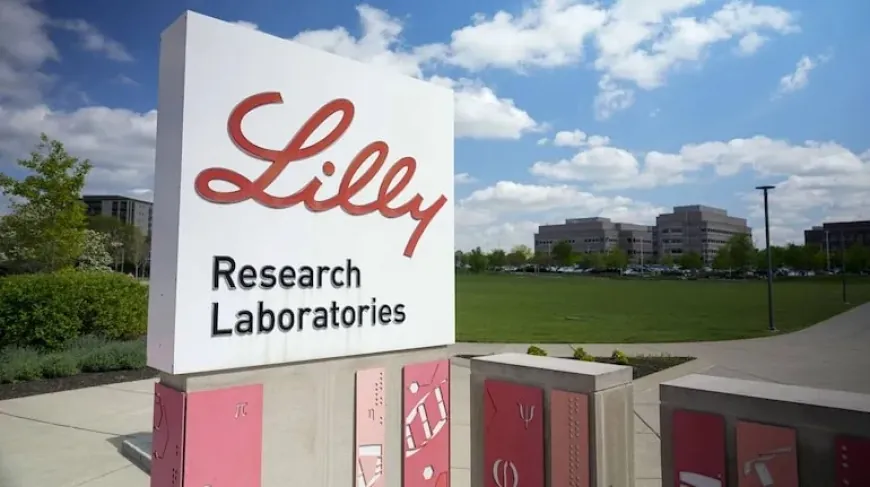Eli Lilly’s $870M Obesity Drug Play Could Flip the Market—Will LLY Be the Next $1T Stock?
Eli Lilly’s $870M deal may eliminate weekly injections and dominate the weight loss market. Could this send LLY stock to record highs?

Indianapolis, IN — Eli Lilly (NYSE: LLY), a major player in the fast-growing weight-loss drug market, has signed a major licensing deal with Swedish biotech company Camurus to improve how its obesity medicines are delivered. The agreement gives Lilly access to Camurus’s FluidCrystal® technology, which allows medicines to be released slowly in the body, potentially reducing how often patients need to take them.
Lilly will pay Camurus $290 million upfront, and the deal could grow to nearly $870 million with milestone and royalty payments. The move is aimed at solving one of the biggest complaints about current weight-loss injections like Lilly’s Zepbound — the need for weekly dosing and the risk of regaining weight if patients stop taking the drug.
What’s Special About the New Tech?
Camurus’s FluidCrystal technology turns injectable medications into a gel-like deposit in the body, slowly releasing the drug over time. This could allow weight-loss treatments to be taken monthly instead of weekly, making them much more convenient and potentially improving patient adherence.
Lilly plans to test this technology with four of its GLP-1 based medicines, including Zepbound and Mounjaro, which are already blockbusters in the obesity and diabetes space.
Less Pain, More Gain for Patients—and Profits
-
Better Patient Experience: Fewer injections could mean more people stick with the treatment, leading to better long-term results.
-
Stronger Competitive Position: This move helps Lilly stay ahead of rival Novo Nordisk and other companies racing to improve weight-loss drug convenience.
-
Boost to Sales: If more people start or stay on Lilly’s drugs because they’re easier to use, that could mean billions more in future revenue.
In the first quarter of 2025, Eli Lilly reported a 45% jump in revenue year-over-year, reaching $12.7 billion. Zepbound and Mounjaro together account for a growing share of that total.
Other Innovations in the Pipeline
Lilly is also making progress on other types of weight-loss drugs. It recently reported strong results for a pill version of its GLP-1 drug, called orforglipron. Instead of an injection, this version is taken once a day by mouth — another option that could attract more users.
Beyond weight-loss, Lilly is developing treatments for Alzheimer’s disease, eczema, cancer, and chronic pain. New drugs like Kisunla (Alzheimer’s), Ebglyss (eczema), and Jaypirca (blood cancer) are expected to become major revenue drivers.
What Could Go Wrong?
-
Competition is growing fast. Companies like Amgen and Novo Nordisk are also developing long-acting or pill versions of GLP-1 drugs.
-
Regulatory risks. New rules about obesity drugs, or cost concerns from insurers and governments, could affect pricing or availability.
-
Manufacturing pressure. Demand is soaring, and any production delays could hold back sales growth.
Should You Consider Buying LLY Stock?
With strong momentum in its core business, bold investments in new delivery technologies, and a growing pipeline of promising drugs, Eli Lilly remains a top contender in biotech. The Camurus deal is a forward-thinking move that could help it stay on top in the weight-loss market and expand its lead in this multi-billion-dollar space.
Eli Lilly isn’t just chasing revenue through its weight-loss franchise — it’s laying groundwork for long-term dominance across multiple therapeutic fronts. With late-stage candidates in Alzheimer’s, oncology, chronic pain, and a pipeline moving toward gene therapy, the company is positioning itself less like a drugmaker with one star product and more like a platform player across high-margin disease areas. For investors, the story isn’t hype—it’s scale, execution, and a pipeline built to absorb future headwinds.
Also Read: Eli Lilly Stock Surges as New Weight-Loss Pill Delivers 8% Drop in Body Weight































































